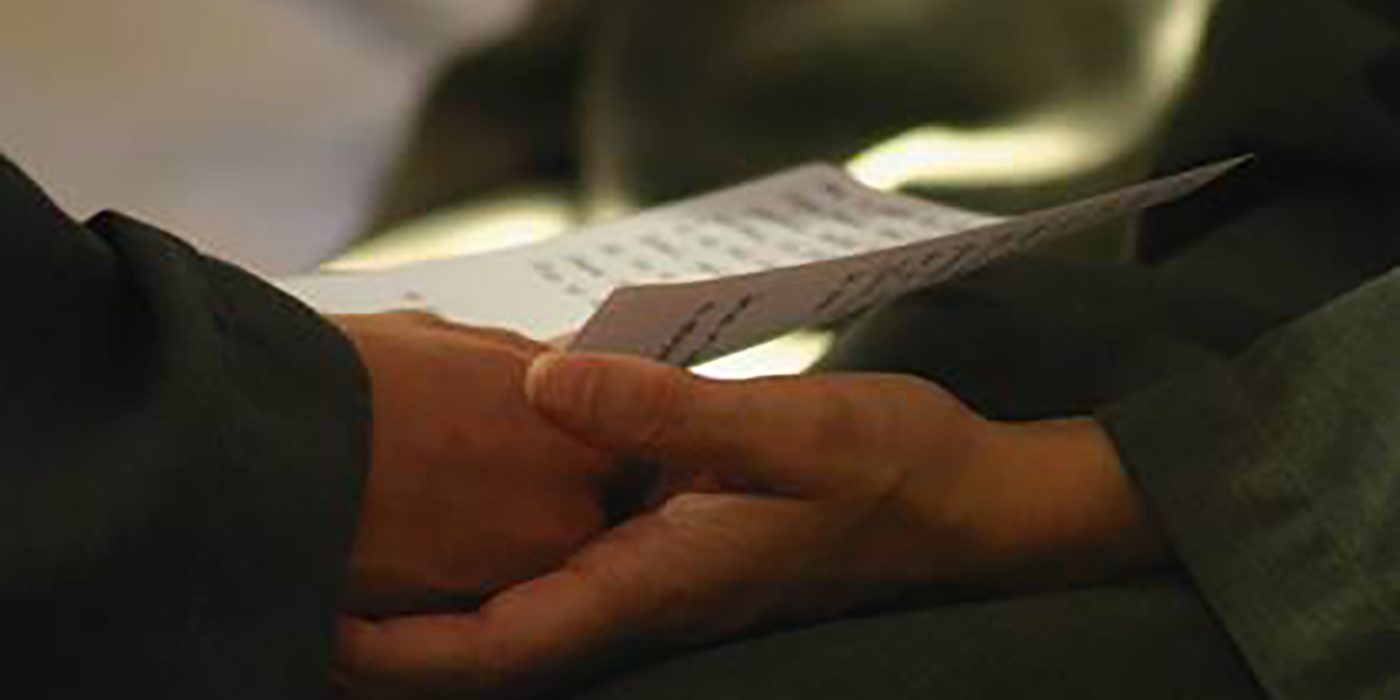October 24, 2017 // Perspective
Making and renewing vows
Last week a friend invited my wife and me to join her in celebrating the 50th anniversary of her perpetual vows. It was a simple but moving ceremony. There was a Mass with guests and members of her religious community. At the offertory she renewed her vows of poverty, chastity, obedience and hospitality.
I found my mind wandering back to 1967 when she first made them. The world around us was in ferment. Amid that turmoil, our friend had set her life on a path that led straight from that day to this.
Taking those vows must have seemed at the time like Cortés scuttling his ships at Veracruz. She was staking everything on a cause, with no possibility of turning back.
Religious vocations are a rarer thing today than they were then. The Center for Applied Research in the Apostolate reports that the number of religious sisters in the United States peaked in 1966 at 181,421. Today there are fewer than 50,000.
I think one reason for this is that we have a hard time comprehending the possibility of perpetual vows. They seem to be at odds with the modern understanding of human nature.
“The heart wants what it wants,” Woody Allen once said. “There’s no logic to those things. You meet someone and you fall in love and that’s that.”
In this view of things, desire is the engine that moves us. We don’t control it by an exercise of will. We might, through reason and effort, choose the means of getting what we want. But as for what that is, that’s for the heart to say.
There’s no point in making vows, because we can’t maintain them against a wayward heart. Better to recognize that psychological fact and leave ourselves some space to change.
Vows are ill-suited to the modern temperament for a second reason. They are promises we make to God. They are not like oaths, which call on God to witness to the truth of what we say. That is a practice we lawyers are familiar with.
Vows, though, are like prayers or acts of adoration. What we offer up is our perseverance.
And the point of the offering is not to concentrate the mind or to devote fuller attention to the projects of the order (for those who take them upon joining a religious community). It is to acknowledge that God owns us, body and soul, and that we want to give him all we have as an act of worship.
We don’t make vows these days for the same reason we don’t pray. When Pope Benedict XVI visited Catholic University in 2008 he spoke with the bishops of the United States and answered some questions. One of them was about the decline in religious vocations.
He said that the solution to that problem was prayer. Not prayer for vocations, as we might think, but rather teaching young people to pray. It’s a short step from prayer to vows.
The wonderful thing about our friend’s celebration was not just that she had made her vows, but that she had kept them. No doubt there were times during the last half-century when she wobbled or wondered about her commitment. Taking vows seriously, as she no doubt did, does stiffen one’s resolve.
But the odd and wonderful thing about offering God our perseverance is that he will answer our prayers by helping us live up to our promises.
The best news. Delivered to your inbox.
Subscribe to our mailing list today.






